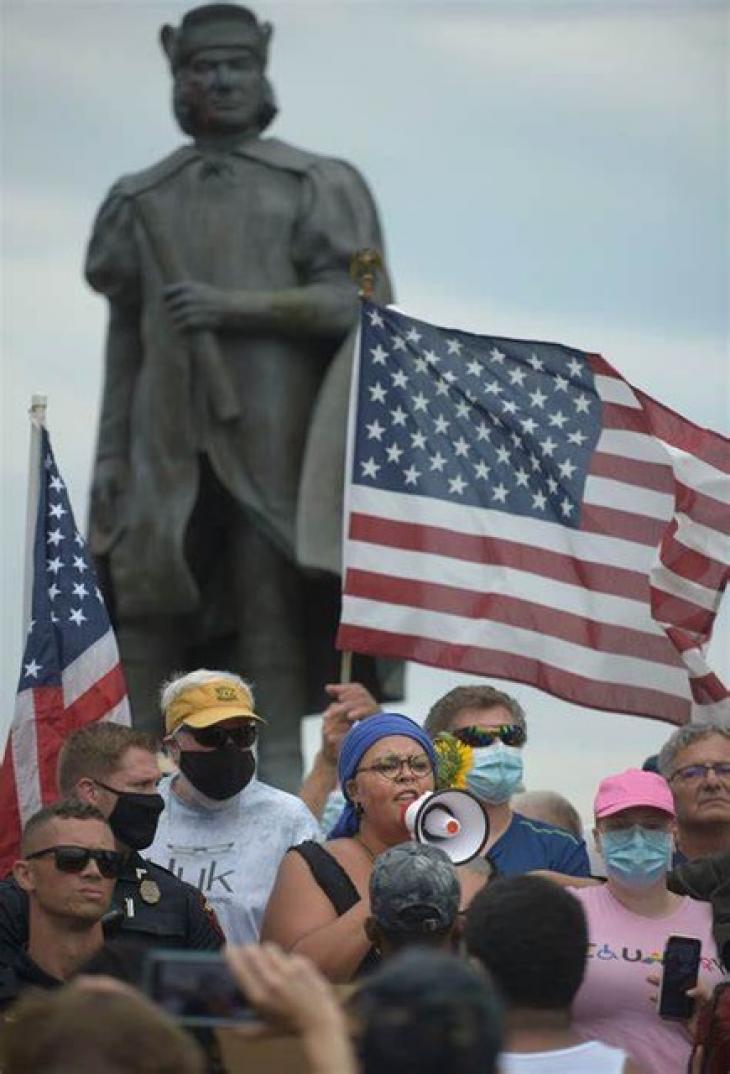
As key figures from American and colonial history continue to controversy, Christopher Columbus is quite literally knocked from his pedestal in Virginia, USA.

Protesters have toppled the statue of Italian explorer Christopher Columbus, vandalising it with spray paint and submerging it in a lake. This follows on from another Columbus protest more than 500 miles north, in Boston, where police have reported the beheading of a Columbus statue.
It is far from the first time a statue in the Virginia capital — and capital of the former Confederacy — has inspired outrage and attempts at removal. Less than a half-hour's walk from Byrd Park, where the Columbus statue was torn down, controversy has risen around a massive memorial to Confederate General Robert E. Lee. A court blocked a plan to remove it.

Columbus represents a distinct case from the broader conversation worldwide around a number of historic figures who have achieved fame and status on a violent chain of events that include pillaging, rape and centuries of oppression targeting natives.


In the past, Columbus has been venerated in the United States, not only with statues but also city names and a federal holiday. However critics have long pushed to reevaluate how he is remembered, and a number of states and cities — including Minneapolis and Seattle -- have replaced Columbus Day with Indigenous Peoples Day.
In Richmond, the Columbus statue stood at the focal point of a protest Tuesday night, which began with a peaceful march and ended a couple of hours later with its toppling. Protesters felled the 8-foot statue using ropes and dragged it about 200 yards to drop it in nearby Fountain Lake, according to the Richmond Times-Dispatch. In Boston the protesters, perhaps, managed to produce the more shocking visual, lopping off the head of a Columbus statue in a park named in his honour. It has led to many asking if, in modern society, Christopher Columbus may have had his day.




